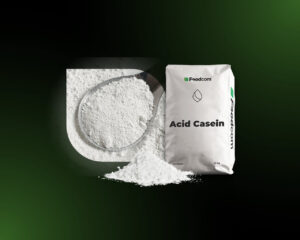Fertilizers and herbicides are two issues of particular concern in the additive market today. There are many new state and regional regulations that restrict herbicide use, which pleases activists (and probably the environment…) but deeply concerns farmers and processors. Currently, it seems that weeds are benefiting the most from these quarrels.
When it comes to fertilizers, manufacturers are facing tough times. Their prices have risen significantly in recent months after sanctions were imposed on the main producers, Russia and Belarus. At the same time, electricity prices have also risen. As a result, farmers have been forced to reduce the use of fertilizers, which is reflected in a decline in demand. There is no doubt that the coming period will be full of challenges, albeit more for farmers than for fertilizer manufacturers – after all, the former will eventually have to buy fertilizers, right?
What else is worth knowing about what’s happening in the additive market? Read on and you will find out!
Vitamin C
Activity in the Chinese vitamin market has increased after the end of the vacation season. Vitamin C continues to be in high demand in many regions due to the ongoing cold season. During this period, the intake of this vitamin increases seasonally every year, and the increased consumer interest leads to busier traffic in the commodity market.
Citric Acid
The main challenges in both the production and distribution of Citric Acid are reverberations of the COVID-19 pandemic and the Russian-Ukrainian war. The raw material is now in relatively high demand, and its price has recently increased. Experts predict further development of the market for this raw material and an increase in its importance worldwide.
Xanthan Gum
Xanthan Gum has been in high demand for a long time. Its prices remain relatively stable at a high level. Recently, prices have continued to rise. Xanthan Gum owes its great popularity primarily to its wide range of applications in the food, cosmetic, medical and other industries.
Lysine HCL
Lysine prices were recently at a low level, which the more negative observers even talked about ‘rock bottom.’ At the same time, experts point out that soon there should be an upturn and price increases. In the last two weeks, there has been some movement in the Lysine market again. Orders for Q2 and Q3 2023 have surfaced.
Ferric Chloride 40%
One of the few commodities in the category of additives whose price has fallen recently. However, one should not be too concerned about a possible decrease in demand for this product. It is used in water and wastewater treatment, laboratories, as well as in jewelry manufacturing and medicine, among others. The wide range of applications in various fields leads us to believe that both the popularity and market size of Ferric Chloride will grow in the coming years.
What else?
Europe
Irish farmers are very concerned about the European Parliament’s pesticide proposals
The new regulations limit the permissible level of pesticide residues in food. Irish farmers are expressing concern about the impact on upcoming harvests and are calling on their own government to intervene. They also stress that the new regulations could significantly worsen the global food crisis.
Scientists are studying the genes responsible for herbicide resistance
A team of scientists from the United States and several research institutions in Europe is working to identify a genetic trait in weeds that increases their resistance to herbicides. Results so far suggest that metabolic resistance, a combination of several changes in the plant that makes it resistant to herbicides, is responsible. The researchers believe their findings will enable better and more effective weed control.
France restricts use of a herbicide
The French health and safety agency ANSES is halting some uses of one of the most commonly used herbicides in the country, S-metolachlor. The reason for the decision is the registration of excessive levels of the substance in groundwater. The chemical’s manufacturers and farmers are naturally unhappy about this decision. Anti-pesticide activists, on the other hand, are cheering. And the weeds, of course, too.
The Americas
Fertilizer manufacturers face a difficult quarter
Fertilizer companies Nutrien Ltd, Mosaic Co and CF Industries are likely to face a challenging time. Last year, fertilizer prices rose sharply around the world after sanctions were imposed on key producers Russia and Belarus. At the same time, electricity prices rose, forcing farmers to curb their spending on fertilizers, leading to a decline in demand. A similar trend could continue for a while, but it should not be forgotten that fertilizers are essential for the production of many crops. For this reason, there will always be (at least some) demand.
Bayer is in trouble
Brazil’s Supreme Court has ruled that Bayer must pay back $252 million in royalties from GMO soybeans. Brazilian farmers had argued that the company had collected royalties on an expired patent. The company said it will carefully review the ruling and plan its next steps, but intends to abide by the ruling. Bayer has the right to appeal the ruling.
U.S. farmers are subject to a shortened deadline for the use of the chemical dicamba
The use of this chemical has been criticized for some time because it spreads uncontrollably after application and damages plants that have not been genetically modified to increase their resistance. The shortening of the application period is intended to curb the spread of dicamba, but it will certainly make farmers’ work more difficult.
Asia & Oceania
Indian fertilizer manufacturer Deepak Fertilisers and Petrochemicals will partner with Novatek
The companies have signed a non-binding memorandum of understanding for the supply of liquefied natural gas and ammonia. The companies will cooperate on both a spot and long-term basis. The main focus will be on the sale of hydrogen and ammonia.
KPP Powers Commodities Inc. is testing a vaccine against African swine fever
A Philippine distributor of feed additives and animal health products has partnered with the country’s Department of Agriculture to test a Vietnamese vaccine against African swine fever. The formulation used was manufactured by AVAC Vietnam JSC. The vaccine is in the implementation phase under field conditions monitored by Vietnam’s Ministry of Agriculture and Rural Development.
China will expand industrial use of genetically modified corn and soybeans
China is expected to plant 4 million mu (267,000 hectares or 660,000 acres) of genetically modified corn varieties this year in a large-scale trial. Although genetically modified food crops have been researched in the country for decades, they have not been approved for commercial use because of public distrust of the technology. Now the government is increasingly supporting their use to ensure China’s food security.







